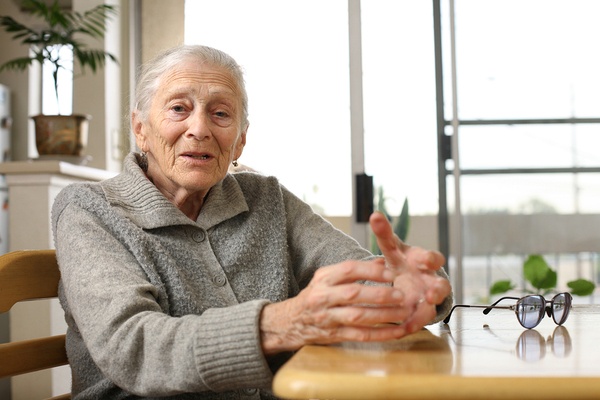Dying is one of the most common fears among people young and old. Thoughts of everything from will it hurt to the impact on loved ones can be frightening -- particularly as the prospect of dying grows closer with age. However, recent research published in the journal, PLOS ONE, reveals that thinking and talking about dying may not be as hard as we think for people of advanced age, AKA the "oldest old." Let's take a closer look at the findings, along with tips for supporting loved ones at the end of life.

Giving the Elderly a Voice
According to researchers at the University of Cambridge's public health and primary care department, our understanding of how older people feel about dying is limited. Says "Death and the Oldest Old: Attitudes and Preferences for End-of-Life Care - Qualitative Research within a Population-Based Cohort Study" study leader Jane Fleming, "Despite the dramatic rise in the number of people living into very old age, there is far too little discussion about what the 'oldest old' feel about the end of their lives. We know very little, too, about the difficult decisions concerning their end-of-life care."
In aiming to bridge the knowledge gap, the study reveals some interesting findings. For starters, the majority of people aged 95 and older view dying as part of life. Having experienced the deaths of many of their contemporaries, many individuals in this age group see themselves as "ready to die." The result? Developing a day-to-day approach to living in the moment with limited fears about tomorrow.
This general mindset, however, doesn't say seniors are without fears about dying. The research indicates while the prospect of dying itself may not faze them, concerns about the dying process do. The "common ideal," according to the study? "A peaceful and pain-free death."
Key Takeaways for Caregivers
The study also determined that while the majority of people in this age group will engage in conversations about dying and end-of-life care, most are never asked. Not only that, but when seniors share their wishes, they are often neither welcome nor documented. Unfortunately, this lack of communication can directly affect attitudes about dying.
Says Fleming, "Death is clearly a part of life for people who have lived to such an old age, so the older people we interviewed were usually willing to discuss dying, a topic often avoided. To best support men and women dying at increasingly older ages, she said, "we need to understand their priorities as they near the end of life." Conversely, avoiding the topic can lead to increased feelings of anxiety, sadness, and loneliness.
The good news? Based on the findings reported in "Death and the Oldest Old," you are likely to find aging loved ones open to the conversation. Once you have initiated the discussion, following the other person's lead can support a mutually fulfilling conversation.
Ultimately, while talking to a loved one about dying can be difficult, maintaining open lines of communication about everything from an individual's feelings about dying to their wishes for end-of-life is a worthwhile endeavor: The majority of people report feeling relieved after sharing their feelings on the topic with others.

mmLearn.org offers an extensive library of free videos for caregivers of older adults, covering topics about senior care. Whether you are a healthcare professional or a family caregiver, if you are caring for an older adult you will find mmLearn.org an essential learning and guidance tool for all of your caregiver training needs. For more online training for caregivers on hospice, advanced directives, and other end-of-life care issues, Access our free database of videos offering online training for caregivers today.
